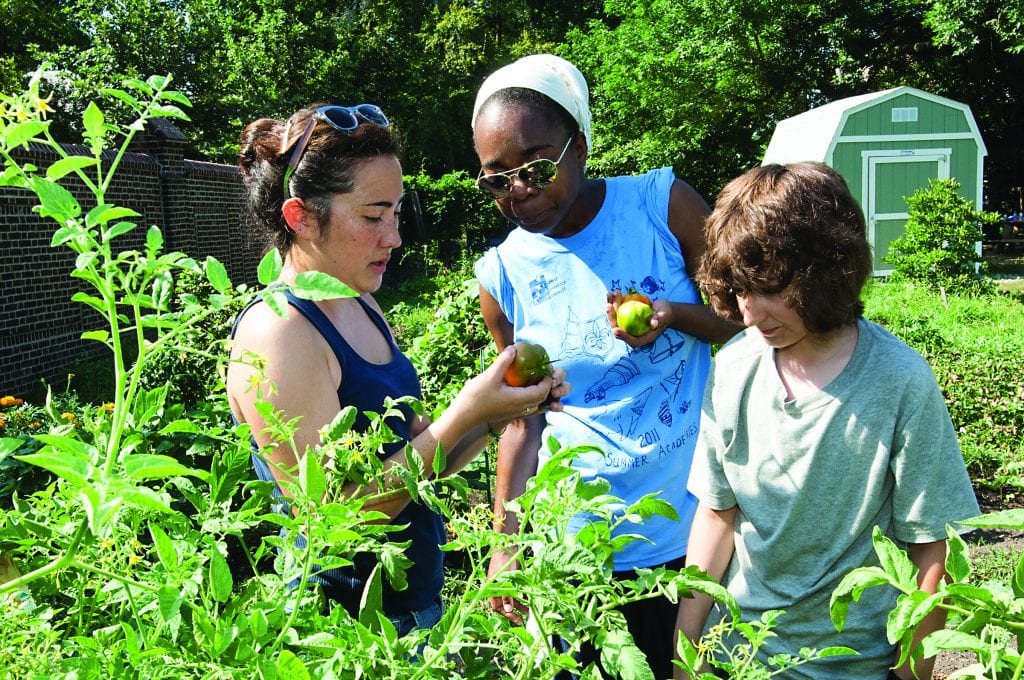Washington University in St. Louis aims to purchase and provide ecologically sound options when feasible.
Specifically, WashU aims to purchase 15 percent environmentally preferable, humane, and fair food by 2017, and 25 percent by 2020 by dollars spent.
Production, processing, and distribution methods all have an ecological impact. To reduce the impact of purchased food at WashU, our dining partners pursue a number of standards that recognize environmental impact. Preference are given to USDA Certified Organic products, which are grown and processed without the use of pesticides, herbicides or artificial fertilizers.
This method of production, although controversial due to enforcement of standards and quality, leads to reduced environmental impacts including greenhouse gases and pollutants, particularly due to the absence of artificial nitrogenous fertilizers. Products bearing this certification are also readily available from many suppliers nationwide. Equivalent or alternative certifications such as Protected Harvest and Food Alliance will also be considered as favorable purchases.

Marine Products
For marine products, the Marine Stewardship Council and the Monterey Bay Aquarium Seafood Watch program offer guidance in making sustainable choices when buying seafood. The goal with sustainable seafood choices is to ensure a long-term source of diversity and bounty of edible sea creatures. The Monterey Bay program splits seafood into three categories: Best Choices, Good Alternatives, and Avoid, based on long-term availability, the percentage of catch that is typically observed, and the state of overfishing of that species. The Marine Stewardship Council bases their certifications on the condition of fish stocks, the impact of the fishery on the marine environment, and fishery management systems.
Imported Food
In the realm of imported and exotic food, certifications such as Rainforest Alliance and Fair Trade Certified, as well as shade-grown coffee, address issues of environmental sustainability, and therefore qualify for consideration for purchase.
Organic Options
Currently, there are some options for organic products on the Danforth Campus such as field greens, carrot chips and local mushrooms. Bon Appétit has participated in the Seafood Watch program since 2002, selecting only Best Choices or Good Alternatives. Additionally, all of the coffee served on the Danforth Campus meets or exceeds Fair Trade certification.
Aramark currently has some options to purchase organic products. They also participate in Seafood Watch, selecting only Best Choices or Good Alternatives. Fair-trade certified coffee is available in one of the two dining locations at the School of Medicine Campus, as well as at the Law School.
Our purchasing preferences value certified products more highly but also recognize the value of foods produced on transitional farms, which are in the process of transferring to organic methods but are not yet certified. Additionally, the matrix gives preference to the Seafood Watch-designated Best Choices over Good Alternatives.
Dining Services Commitments
To decrease the ecological impact of dining purchases, Washington University Dining Services will:
- Gradually increase the consumer options for purchases of organics, especially produce and pre-packaged products.
- Track organic purchases as a percentage of the total purchases with assistance from food service providers.
- Immediately provide organics in instances where the switch is cost-neutral and sufficient amounts are available.
- Seek to provide consumer choice, supplemented with extensive education about and labeling of organics.
- Investigate the possibility of a specialized service location or particular meal time that focuses on organic, vegetarian and local options.
- Continue to purchase seafood categorized by the Seafood Watch program.
- Seek to purchase only seafood from the Best Choices category.
- Increase labeling and educational efforts to solidify student interest in sustainable seafood.
- Continue and expand Fair Trade Certified products.